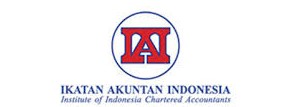Pengelolaan Keuangan Masjid: Studi Empiris pada Masjid Al Furqan Kecamatan Lubuk Begalung Kelurahan Pulau Aia Nan XX Kota Padang
Accountability; Mosque Finance Management
Abstract
The specificity of the problem formulation is how to manage mosque finances at the Al-Furqan Mosque. The aim of the research results is to find out the dynamics of the financial management practices of the Al-Furqan Mosque. The method used is a qualitative method using an ethnomethodological approach. This research is different from previous research because specifically this research is related to the financial management of mosques in the month of Ramadhan because in the month of Ramadhan there are many activities carried out at the Al Furqan Mosque such as Taraweh, Ramadhan Islamic Boarding School, Makjlis Taklim, Wirid Pemuda and other activitie and the respondents in this study are mosque administrator and people that around the mosque. The conclusion of this research is that the financial management of the mosque has been running well, this is shown by the active role of the congregation directly in mosque activities, the programs have been running effectively, this can be seen from the active role of the leader in motivating all administrators to be able to serve the mosque congregation better by providing useful programs for mosque congregations and very clear cash flow reports. The suggestions given by researchers for further research are to carry out deeper research, both in terms of interviews with informants and data processing with more references. So that the information needed by researchers is more abundant and can be developed.
References
Agustina, S. (2020). Pertanggungjawaban Laporan Keuangan Gereja.
Alfaiz, D. R., & Aryati, T. (2019). Pengaruh Tekanan Stakeholder Dan Kinerja Keuangan Terhadap Kualitas Sustainability Report Dengan Komite Audit Sebagai Variabel Moderasi. Jurnal Akuntansi Dan Keuangan Methodist, 2(2), 112–130.
Angelia, N., & Rudy J. P. (2018). Penerapan Laporan Keuangan Organisasi Nirlaba Berdasarkan PSAK No.45 pada Panti Sosial Tresna Werdha Hana. Jurnal Riset Ekonomi, Manajemen, Bisnis Dan Akuntansi, 2(1), 1–8. https://e-jurnal.stienobel-indonesia.ac.id/index.php/akmen/article/view/196
Ayyagari, M. (2007). Firm Innovation in Emerging Markets. Growth Lakeland, 54(4),38–45. http://books.google.com/books?hl=en&lr=&id=VpOX8wbmtn8C&oi=fnd&pg=PA34&dq=Firm+Innovation+in+Emerging+Markets&ots=h5gHYsNC5d&sig=B4GROsZPmZ6FFG8Bckylk0t zI
Dhanani, A., & Connolly, C. (2012). Discharging not-for-profit accountability: UK charities and public discourse. Accounting, Auditing and Accountability Journal, 25(7), 1140–1169. https://doi.org/10.1108/09513571211263220
Gunadi, B. H., Prayudi, M. A., & Kurniawan, P. S. (2020). Penerapan Prinsip Habluminallah Dan Habluminannas Sebagai Konsep Pengendalian Internal Pada Pengelolaan Keuangan Masjid. In Jurnal Ilmiah Mahasiswa Akuntansi) Universitas Pendidikan Ganesha (Vol. 11, Issue 1).
Oktaviani, K. A. (2019). Akuntabilitas Pengelolaan Keuangan Masjid (studi kasus pada 5 Masjid di Kota Malang). Jurnal Ilmiah Mahasiswa FEB, 7(2), 4–8.
Patawaran, N., & Restuti, M. (2023). Bagaimana Penerapan Prinsip-Prinsip Good Church Governance Pada Gereja Toraja ? Jurnal Akuntansi Manado (JAIM), 4(2), 415–427. https://doi.org/10.53682/jaim.vi.7261
Pramesvari, L. N. (2019). Fenomena Pengelolaan Dan Pelaporan Masjid Jogokariyan Yogyakarta Pada Aspek Mental, Fisik Dan Spiritual. Jurnal Ekonomi, Bisnis, Dan Akuntansi, 21(3). https://doi.org/10.32424/jeba.v21i3.1382
Purba, F., & Maksudi, M. Y. (2020). The Effect of Cash Turnover and Account Receivable Turnover on Returns on Assets in PT . Alexindo Mandiri Express 2015-2019 period. Indonesian College of Economics, 1–17.
Putri, N. A., & Lestari, D. (2019). Pengaruh Gaya Hidup dan Literasi Keuangan Terhadap Pengelolaan Keuangan Tenaga Kerja Muda di Jakarta. AKURASI: Jurnal Riset Akuntansi Dan Keuangan, 1(1), 31–42. https://doi.org/10.36407/akurasi.v1i1.61
Randa, F., Triyuwono, I., Ludigdo, U., & Sukoharsono, E. G. (2011). Studi Etnografi: Akuntabilitas Spiritual Pada Organisasi Gereja Katolik Yang Terinkulturasi Budaya Lokal.
Rokhlinasari, S. (2015). Teori –Teori dalam Pengungkapan Informasi Corporate Sosial Responbility Perbankan. Jurnal Kajian Ekonomi Dan Perbankan Syari’ah, 7, 1–11.
Sari, M., Mintarti, S., & Fitria, Y. (2018). Akuntabilitas pengelolaan keuangan organisasi keagamaan. Kinerja, 15(2), 45. https://doi.org/10.29264/jkin.v15i2.4029
Siskawati, E., Ferdawati, & Surya, F. (2016). Pemaknaan Akuntabilitas Masjid: Bagaimana Masjid dan Masyarakat Saling Memakmurkan? Jurnal Akuntansi Multiparadigma, 7(1), 70–80. https://doi.org/10.18202/jamal.2016.04.7006
Susanto, I., Basalamah, S., & Rahim, S. (2019). Akuntabilitas Masjid: Studi Fenomenologi Pengelolaan Keuangan Masjid di Kota Makassar. Jurnal Economix, 7(2), 26–35. 196. https://doi.org/10.24843/eja.2020.v30.i05.p10https://doi.org/10.24843/eja.2020.v30.i05.p10







.png)
.png)
